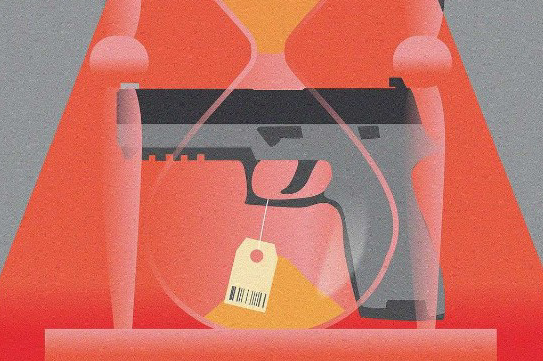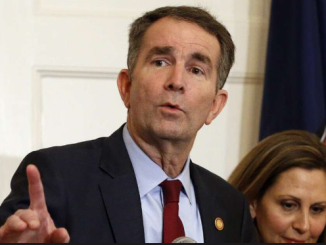
OPINION:
Gun owners and constitutionalists at large are growing increasingly concerned by an invasive new policy to be enforced by the Bureau of Alcohol, Tobacco, Firearms and Explosives, which will mandate the reporting of background-check delays and denials to local law enforcement when someone tries to purchase a firearm. We can already predict the negative consequences of this poorly designed policy, with innocent individuals trying to buy a gun being inadvertently flagged by the National Instant Criminal Background Check System and, shortly after, angrily greeting law enforcement at their front door.
Under existing law, all commercial firearm transactions require the buyer to undergo a background check through the NICS system. At times, delays or denials are returned to the seller by the FBI, allegedly because the agency claims to have conviction records or other evidence that would disqualify someone from firearm purchasing. While the current system will prevent the transfer of firearms if a denial comes up, there is no local law enforcement notification policy. This is because data concretely supports the notion that these delays or denials are nearly always false positives and can be racially tied.
Justice Department data shows that over 9 out of 10 NICS denials are false positives! Equally compelling, the independent Government Accountability Office has highlighted the near zero prosecution level of those denied. On top of that, economist and gun rights advocate John Lott’s research suggests that members of a minority group are disproportionately denied by the NICS system, compelling bipartisan House Members to insert a required DOJ demographic study on NICS denials into a large gun package they passed in June.
So, why is Congress doubling down, and how did we get to the current point?
First, this required notification policy, also known as the NICS Denial Notification Act, was foolishly embedded in the Violence Against Women Reauthorization Act of 2019 (VAWA). This compelled Gun Owners of America to successfully oppose the bill’s passage for three years. However, this past March, the VAWA bill was inserted into the massive omnibus government spending package, which was rammed through Congress with a mere 48-hour notice.
Second, our two data-reinforced points, coupled with the overwhelming disposition of criminals to illegally acquire a firearm to begin with, again make one wonder what the real end game is with this new denial notification policy. Gun Owners of America maintains that this is just another policy from the anti-gun crowd aimed at harassing and discouraging individuals from exercising their Second Amendment rights. As previously demonstrated, a denial is overwhelmingly likely to be false and an unjust denial of the purchaser’s constitutional right. Just as insidious, those in minority communities are likely to be disproportionately targeted for denial by the system.
With passage of this legislation, many customers buying a firearm may soon discover that occasional delays or denials in NICS checks will automatically result in local law enforcement being notified of a potential attempt to illegally acquire a firearm, forcing them to investigate. Some may argue that this is a good thing, that this is well-intentioned and should help cut down on dangerous illegal activity. GOA would fully disagree, both due to the overwhelming lack of criminals attempting to acquire a gun through legal means and, more importantly, because we knew that since the inception of the NICS system, it was ripe for abuse and would lead us down the slippery slope we now find ourselves facing.
American law enforcement is already spread too thin and facing a recruiting crisis, and sending it on wild-goose chases that yield virtually zero prosecutions and fan flames of outrage in the process is not a wise policy decision. And yet, here we are, facing unnecessary frustrations and outrage that our own policymakers created in a bipartisan manner. The American public deserves better policymaking, and it can start with repealing this nonsolution to a nonproblem.
* Article from: The Washington Times


